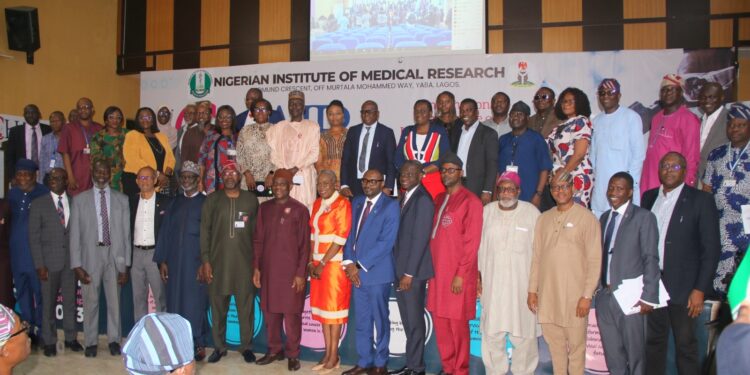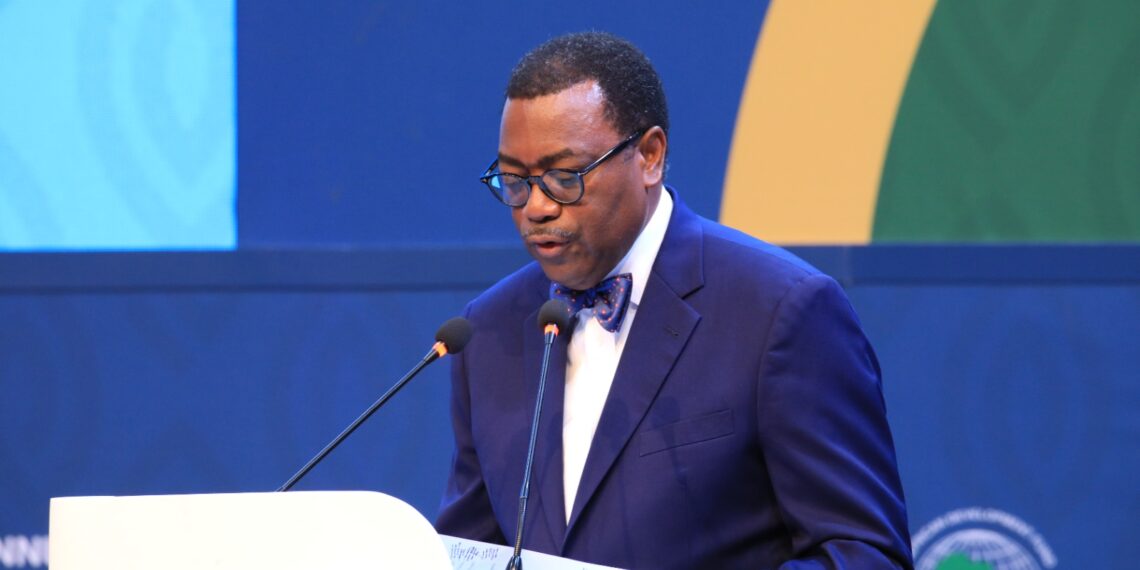FG inaugurates health research committee
- Health SectorUncategorized
- No Comment
- 290

The Federal Government has stepped up efforts to address citizens’ health challenges and add to global solutions to health needs with the inauguration of the National Health Research Committee (NHRC).
Inaugurating the 13-member committee, which is chaired by Prof. Olufunmilayo Olopade in Lagos on Thursday evening, the Minister of State for Health and Social Welfare, Dr. Tunji Alausa, stressed that the government’s vision for the health and well-being of every Nigerian transcends the challenges of our time.
According to Alausa, “It is a vision rooted in the belief that research is the compass guiding our journey towards healthier, happier lives for all Nigerians.
“In the face of evolving health landscapes, our commitment to a robust, evidence-driven healthcare system has never been more crucial.
“Therefore, the establishment of the NHRC is not just a formality but a bold statement of our commitment to advancing health outcomes for our people.”
Expressing confidence in the committee populated by experts in different fields of health and medicine and charging them to go beyond expectations, Alausa described the committee as a beacon of hope, an intellectual powerhouse that will steer Nigeria through the complex seas of health challenges.
“Its role is pivotal – it is the engine that will drive our nation’s health research agenda. However, I ask that we all go beyond what is expected of us to achieve what is unprecedented.
“Today, we bring together brilliant minds from diverse fields in medicine, public health and research. The power of collaboration lies in its ability to catalyse innovation. I challenge the committee to foster inter-disciplinary partnerships, breaking down silos to tackle health issues comprehensively.
“In this era of rapid technological advancement, we must harness the power of innovation. I envision a Nigeria where technology is not just a tool but a transformative force in healthcare.
“The committee’s endeavours should embrace artificial intelligence, telemedicine and other cutting-edge technologies to revolutionise healthcare delivery.
“As we embark on this journey, let us uphold the highest ethical standards. Transparency in our research processes is non-negotiable. Building and maintaining public trust is essential for the success of our initiatives. “The committee must be a beacon of integrity, ensuring that every research endeavour contributes to the betterment of society,” the minister added.
Accepting the task, NIMR Chairperson, Olopade, said she was honoured to accept the huge responsibility after over 40 years of leaving Nigeria for post-graduate training in the United States.
Commending the government for “prioritising health research and the pivotal role it plays in achieving sustainable development in any nation, Olapade said the appointment was beyond personal achievement, but a collective acknowledgement of the significance of advancing quality, person-centred healthcare through rigorous scientific inquiry in the era of precision medicine.
“Nigeria is home to a diverse and vibrant population with some unique healthcare challenges, and with an estimated population of over 225 million, Nigeria is home to one in five black persons in the world.
“Using data from transatlantic slave ship records and genetic ancestry data, it is also estimated that nearly 70 per cent of African Americans have genetic roots in Nigeria or West Africa.
“Therefore, we have the responsibility to lead innovation in healthcare for this population and have the potential to transform the society and revitalise economies in low resource settings across the African diaspora,” Olopade stated.
Olopade further expressed confidence in the crème of accomplished scholars on the committee with their unique and highly innovative programmes in communicable and chronic non-communicable diseases such as sickle cell disease, diabetes and cancer.
“As Nigeria seeks to navigate the complexities of modern healthcare, the role of research becomes even more crucial. It is through research that we can understand the specific health needs of our people, leapfrog to innovative solutions, and ultimately improve overall health outcomes in our nation,” Olopade added.
To make their job successful, Olopade urged the government to allow health researchers to work collaboratively by opening supply chains, fostering increased demand for high-quality healthcare, and helping build sustainable ecosystems that will create jobs for highly trained young people to practice in Nigeria.
And rather than the current high-rate brain drain, she expressed hope that the next generation of Nigerian trainees should have unprecedented opportunities to benefit from ‘brain circulation’ that can fuel economic recovery, following what has seemed like an unending COVID-19 pandemic that revealed gross inequities in global health systems.
By Tola Adenubi
https://tribuneonlineng.com/fg-inaugurates-health-research-committee/





